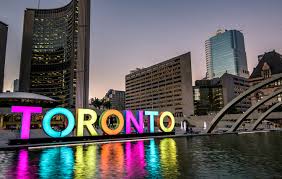 July 2019
July 2019
Popular tourist destinations can have more short-term rental challenges as those with residential properties seek to compete against hotels. Toronto, currently struggling with these challenges, is expected to have new short-term rental rules in place shortly. Miami Beach, another popular tourist destination that has implemented short-term rental rules, offers a glimpse into this future.
In Miami Beach Airbnb guests can have their evening interrupted by a code compliance officer knocking on the door asking questions to determine if residents are owners, guests or visitors to the area. They ask if the space was found and rented on Airbnb, and generally know in advance when properties are used for short-term rentals. A visit allows the compliance officer to confirm the individual is a visitor to Miami Beach who did find and rent the space on Airbnb or a similar platform. This makes the guest an illegal renter.
Residential areas are popular with tourists because of proximity to the beach and popular restaurants. In some areas it is prohibited for anyone to rent a unit for less than six months.
Compliance officers learn of illegal short-term rentals when a property manager in a neighbouring building or house calls to make a complaint. Loud music, late night parties or drunk guests are common complaints. Residents have come to recognize the signs of homes being rented out. People wandering through the neighbourhood with suitcases looking unsure of where they are going. The sound of suitcases in building lobbies, in elevators or on the street at all hours of the day and night. Lockboxes, where renters pick up keys, can be seen along the sides of buildings, on fences or bicycle racks, or hidden behind hedges. Trash left after guests depart becomes a community problem since many rental properties don’t utilize cleaning services. Vans containing clean linens, towels and bedding can be seen servicing short-term rental properties.
A code compliance officer equipped with body camera will knock on many doors in an evening, most of which will be illegally rented out. They can require renters to vacate the premises or allow them to stay for a period until they obtain other accommodation. Daily checks by compliance officers may continue.
Hosts must have resort tax registration and business license numbers before a platform can allow a short-term property to be posted. Listings in areas that don’t allow short-term rentals must be removed – a process referred to as “geofencing”. Owners renting illegally can be fined $20,000 US for a first offence with fines increasing in $20,000 US increments for each additional offence.
In Miami Beach these regulations are intended to ensure those who purchase a home know it is a residential community.
Toronto may soon be home to similar laws and practices.



